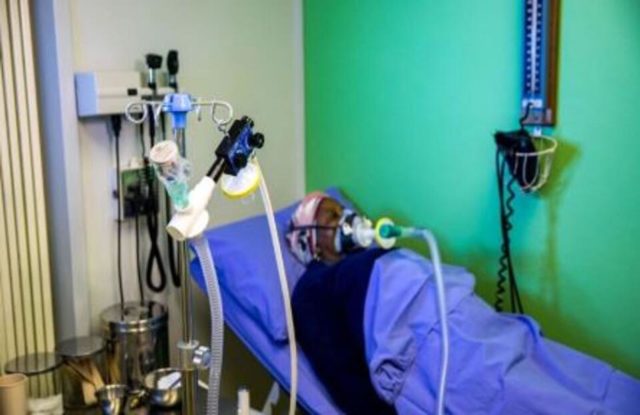The ventilator will be rolled out soon.
Cape Town – The Council for Scientific and Industrial Research (CSIR) has completed work on a ventilator to be rolled out nationally, for those showing respiratory distress in the early phase of Covid-19 infection.
The device formed part of the National Ventilator Project launched in April by the Department of Trade, Industry and Competition (DTIC) as part of the government’s strategy to combat the pandemic.
It aims to distribute 10 000 ventilators by the end of next month.
Martin Sanne, executive manager for CSIR Future Production: manufacturing, said the device was locally designed and produced by the CSIR with Siemens, Simera, Akacia, Gabler, Umoya and UCT.
Sudesh Sivarasu, associate professor of biomedical engineering in the UCT Department of Human Biology, Faculty of Health Sciences, and head of the Medical Devices Lab, said: “We’re so excited about the fact that the work that happens in a small lab is now going to impact tens of thousands of people in SA at a time when it is needed most.
“It’s not just about 10 000 ventilators; it’s about all those ventilators being locally manufactured by local engineers. It’s the local job creation, impact and innovation, and that has more value than the actual numbers.”
Picture: Council for Scientific and Industrial Research /Supplied
Pictures: Council for Scientific and Industrial Research /Supplied
The ventilator, called CSIR L.I.F.E. (lung inspiratory flow enabler), uses standard, hospital-grade oxygen supply to provide a mild level of oxygenated air pressure that helps keep a patient’s airways open.
Sanne said: “While ensuring that we achieve this in a short period of time, we had to ensure that we follow a rigorous, documented product life-cycle methodology that would ensure scalable manufacturing.
“We also had to ensure compliance and licensing under the South African Health Products Regulatory Authority (Sahpra) and guidelines of the World Health Organization.”
He said Siemens provided the necessary software support for the product management, as well as software to facilitate rapid production scaling.
Picture: by UCT/Supplied
Picture: UCT/Supplied
By June, Sanne added, the necessary research and development had been completed and the continuous positive airway pressure system was tested at UCT. That led to regulatory approval and licensing obtained from the Sahpra.
“There are ongoing discussions with the Department of Health and the DTIC to produce additional devices before the end of August,” Sanne said.
According to the CSIR, under- resourced state hospitals will be prioritised in the first batch of the rollout.
Mechatronics engineer Edmund Wessels and mechanical engineer Catherine Gordon-Grant said they have both been striving towards a ventilator design that’s the best fit for the South African clinical environment.
“The purpose of our usability testing is to ensure that the devices are as intuitive and safe as possible to ensure that there aren’t any risks in a real-life situation,” Gordon-Grant said.
Cape Argus








